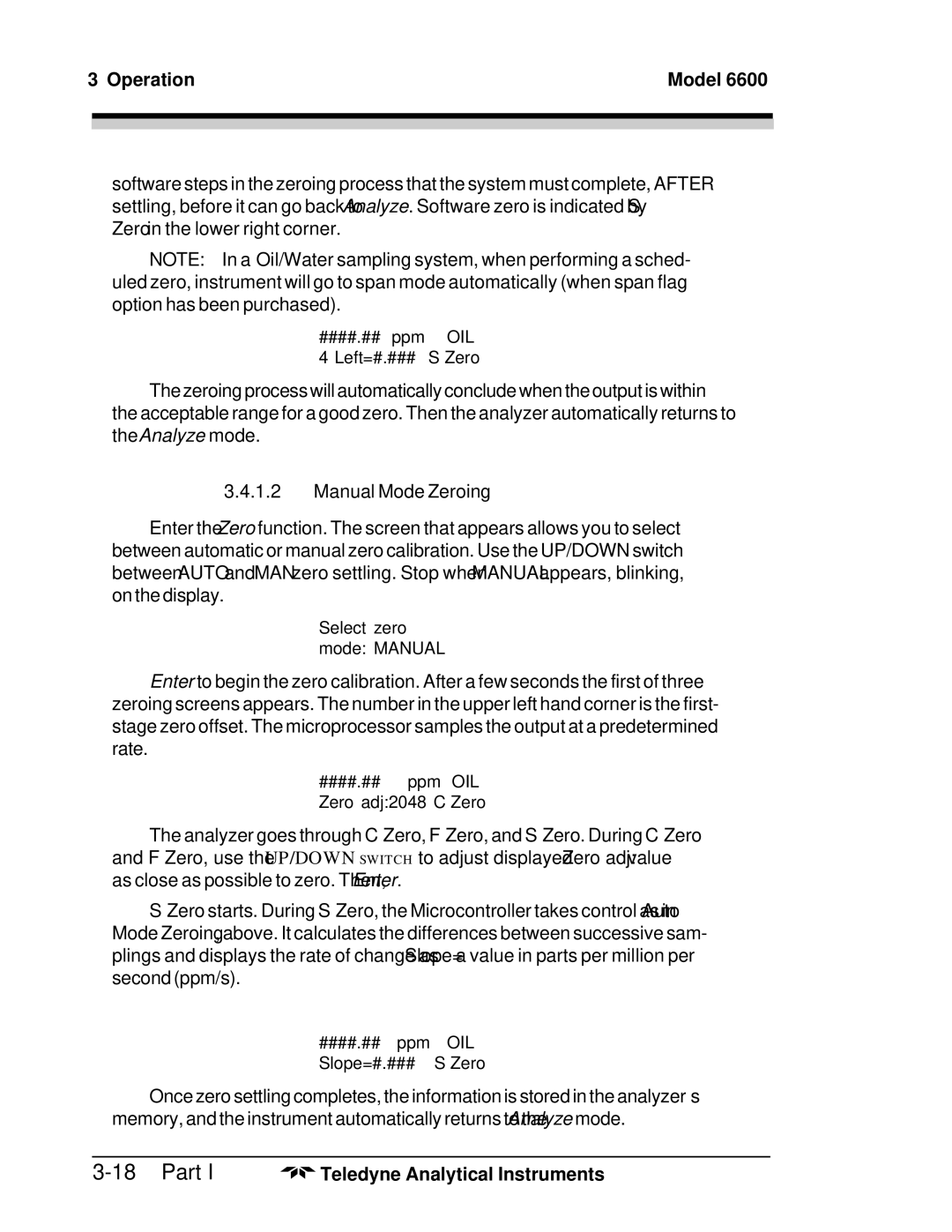3 Operation | Model 6600 | |
|
|
|
|
|
|
|
|
|
software steps in the zeroing process that the system must complete, AFTER settling, before it can go back to Analyze. Software zero is indicated by S– Zero in the lower right corner.
NOTE: In a Oil/Water sampling system, when performing a sched- uled zero, instrument will go to span mode automatically (when span flag option has been purchased).
####.## ppm | OIL |
4 Left=#.### |
Thezeroingprocesswillautomaticallyconcludewhentheoutputiswithin the acceptable range for a good zero. Then the analyzer automatically returns to the Analyze mode.
3.4.1.2Manual Mode Zeroing
Enter the Zero function. The screen that appears allows you to select between automatic or manual zero calibration. Use the UP/DOWN switch between AUTO and MAN zero settling. Stop when MANUAL appears, blinking, onthedisplay.
Select zero mode: MANUAL
Enter to begin the zero calibration. After a few seconds the first of three zeroing screens appears. The number in the upper left hand corner is the first- stage zero offset. The microprocessor samples the output at a predetermined rate.
####.## ppm OIL Zero adj:2048
The analyzer goes through
####.## ppm OIL Slope=#.###
Oncezerosettlingcompletes,theinformationisstoredintheanalyzer’s memory, and the instrument automatically returns to theAnalyzemode.
